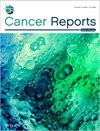Rates of endometrial cancer, the sixth most common in women, are rising. HRQoL, reflecting health beyond clinical contexts, includes disabilities and daily functioning impacts. Measured by various tools such as EuroQoL-5 Dimensions (EQ-5D-5L), it aids in economic evaluation of interventions.
The purpose of this study was to analyze Health-Related Quality of Life (HRQoL), measured by the EQ-5D-5L instrument, in different states of endometrial cancer (EC) patients.
We conducted a cross-sectional study on EC patients who underwent follow-up at Siriraj Hospital, Thailand, between January and June 2023. Patients were classified into five groups: early state, advanced state, curative state, locoregional recurrent state, and distant recurrent/progression state. Demographic and socioeconomic data were collected. EQ-5D-5L and visual analog scale instruments (EQ-VAS) were used to compared between disease states. Descriptive statistics were used to summarize patient characteristics, and the Mann–Whitney U test (p ≤ 0.05) compared EQ-5D-5L scores across groups.
The study included 56 EC patients, with a mean age of 60.1 ± 10.9 years and a mean BMI of 26.8 ± 5.3 kg/m2. The EQ-5D scores were as follows: 0.9055 (IQR 0.8193–0.9436) for the early state, 0.8308 (IQR 0.7997–0.8611) for the advanced state, 0.9235 (IQR 0.8521–0.9855) for the curative state, 0.9096 (IQR 0.6249–0.9577) for the locoregional recurrent state and 0.5778 (IQR 0.2884–0.8521) for the distant recurrent/progressive state. The median EQ-VAS for each state was 70, 75, 82.5, 75, and 65, respectively. The EQ-5D values had significantly deteriorated after distant metastasis/progression compared to curative states (p-value = 0.003). Mobility and pain/discomfort appeared to be the two main concerns.
The findings show the substantial negative impact of distant metastasis or disease progression on HRQoL. These findings will be used to guide future economic research in the field of endometrial cancer treatment.



